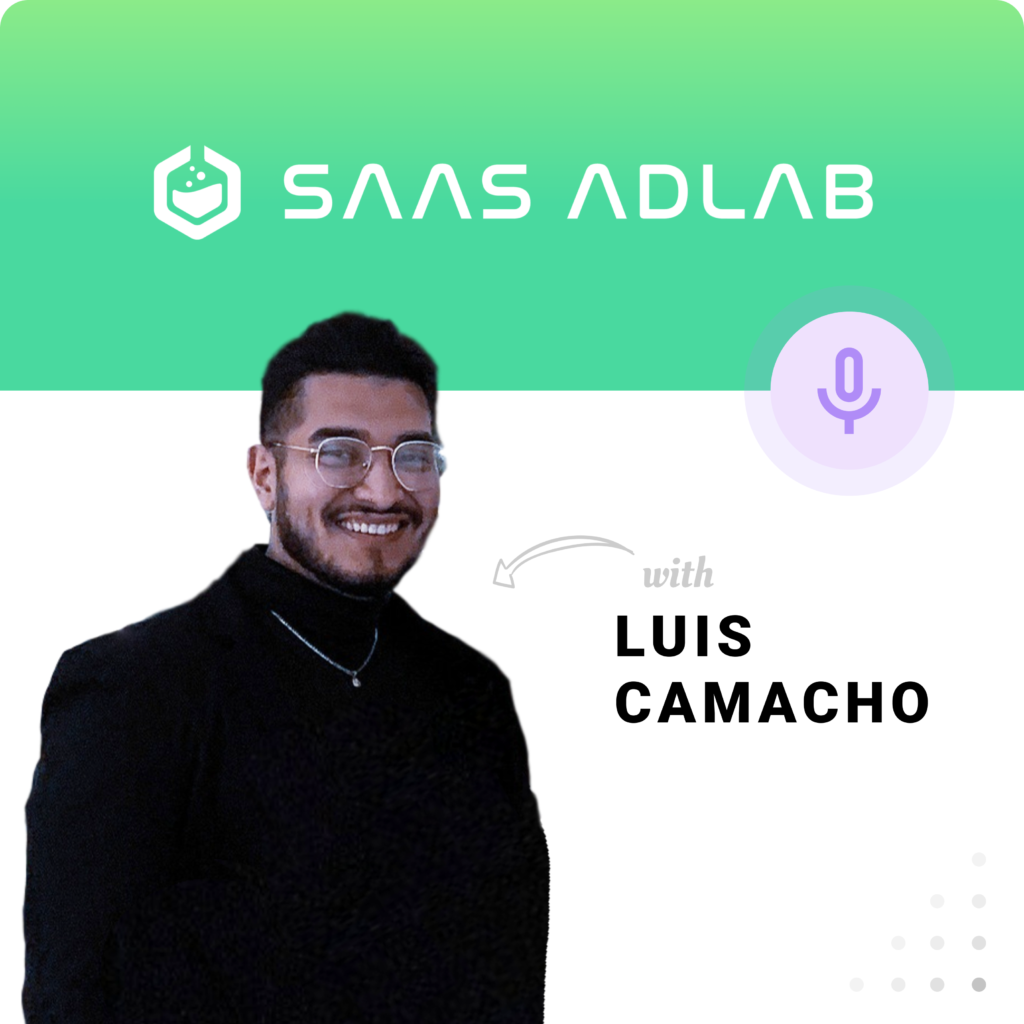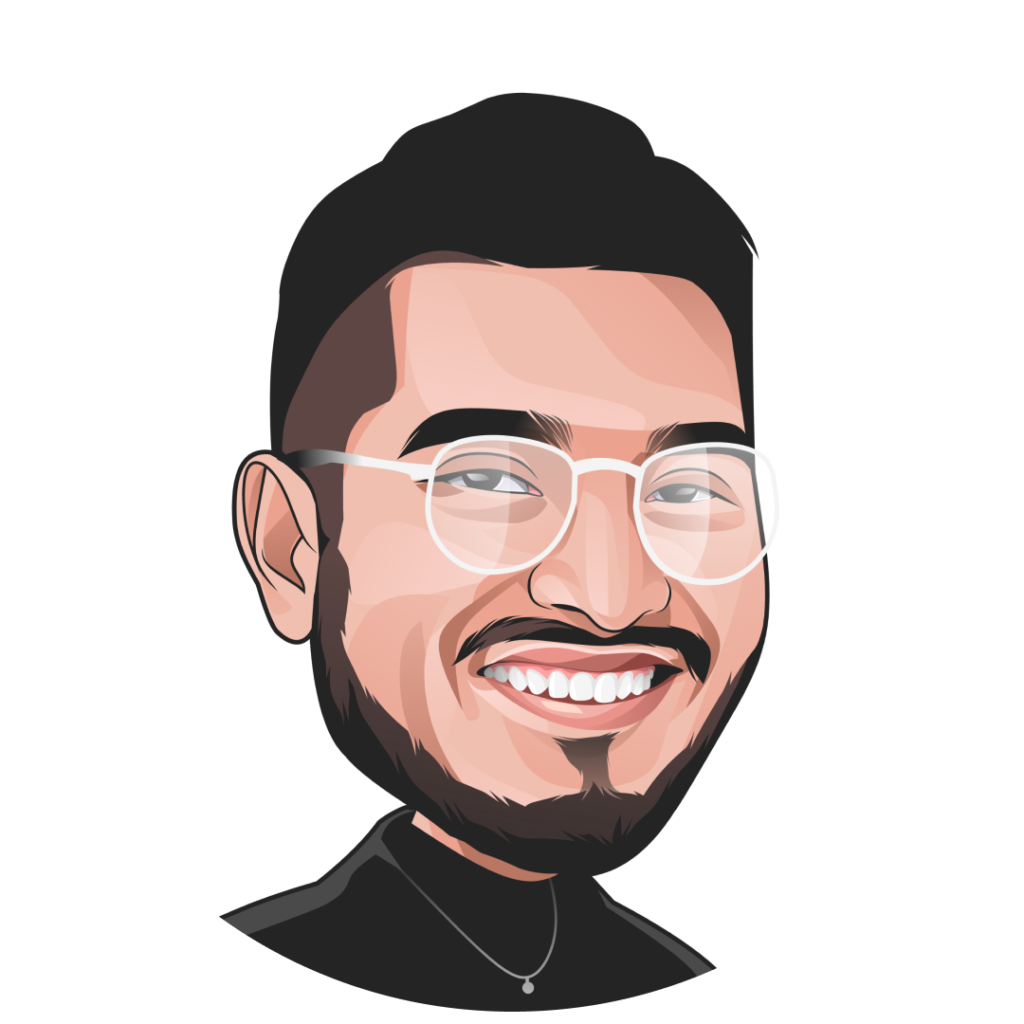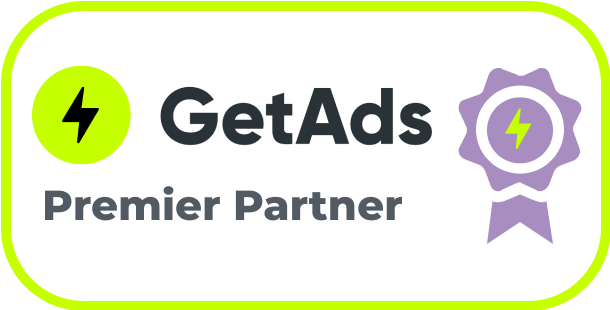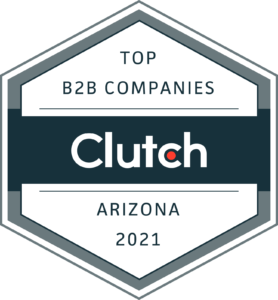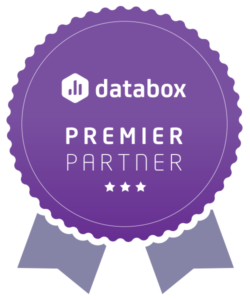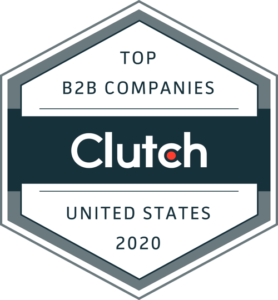Luis Camacho
Welcome to the SaaS AdLab Podcast, we bring you the stories of successful SaaS founders, entrepreneurs and CEOs. My name is Luis, I’m the owner and founder of Fantôm Agency, a digital marketing agency specializing in SaaS companies.
Luis Camacho
Today I have the pleasure of interviewing Chris Ronzio. He is the founder and CEO of Traniual. Thank you so much for being on here today. It’s a pleasure having you. And I’m just really excited to have the opportunity to speak with you. I feel like you’ve been kind of in the background here locally in Arizona, which has been, you know, not super, I guess it doesn’t happen, right, so it’s cool to have you here.
Luis Camacho
And first, I did want to mention they’re having a 10 percent off discount code and that’s PROCESS all caps, if you want to use that. Go ahead and use it. I think you’d like the product a lot. And why don’t you tell us a little bit more about yourself?
Chris Ronzio
Yeah, absolutely. Thanks so much for having me. So like you mentioned, we are here in Scottsdale, Arizona.
Chris Ronzio
Trainual is officially one year old as a company, but four years old as a product. So we can talk about that transition and everything that went into building this business. But really, it came out of my experience in my last company, working with other small businesses. I saw a need in the market, a tool that I thought I wanted for myself and that I could make a business out of. And that’s where Trainual came from. So I’m sure we’ll get into the weeds.
Chris Ronzio
But it’s it’s been an exciting year.
Luis Camacho
That’s awesome. Absolutely. And, you know, as far as just talking a little bit more about entrepreneurial and stuff like that with many of the SaaS companies that I’ve interviewed in the past and just learning how they come to be, it’s usually and this is pretty much all entrepreneurs, right? They find some sort of issue or they want to change something and they can’t find a solution out there. So what they do is they go ahead and make it.
Luis Camacho
And that’s essentially the heart of the entrepreneurs to find solutions. And so what were the issues that you were experiencing in whether it was a work space that you had or another company that you were growing? And then you noticed that there were certain things that you needed to implement in order to help you scale or just make processes streamlined.
Chris Ronzio
So I’ll take you back to my first company. When I was growing my first company, it was a video production company and we did youth sporting events all over the country. And so a big part of growing that business and doing events in all 50 states was we had to train camera operators so we would find these crews, these camera operators in different cities, and we’d contract with the sports organizations that wanted us to be in seven cities in the same weekend.
Chris Ronzio
And so the advantage for them was by working with one company, they knew they’d get some consistency in terms of how things were delivered. But then the challenge for us was that we had to train everyone and make it feel like it was the same exact company, same exact service, no matter what city we were. And so we had kits of equipment that we were shipping all over the country and they’d go from one city to another and and just never really got off the airplanes.
Chris Ronzio
And then we had crews that we would set up and train in different cities and they’d drive anywhere eight hours away. But but so much of that business was just the logistics of teaching people what they needed to do, how they needed to set it up, what the footage needed to look like, what they needed to wear, what they needed to say to the person when they set up, how they needed to ship everything back to us. It was just draining, draining, draining.
Chris Ronzio
So once I sold that company, I started doing a consulting firm and it was an operations consulting firm to teach other businesses how to put systems and processes in place so that they, too, could scale. And again, a big part of that was just training. It was repeatable systems. And once you figure out how to do something, you need to create training for it or you need to document it and write it down so that other people could do it.
Chris Ronzio
So I saw this problem both from my own experience with my company and then through my clients with their companies. And when I looked around for ways to to really deliver training efficiently, the best option out there for most small businesses was Google Docs or Dropbox Folders, you know, and so and so I thought there’s got to be something that’s more than just a folder I’m sharing with people are more than just a bunch of files. I’m sending them and crossing my fingers that they read them.
Chris Ronzio
There’s got to be something where I can track if they’ve actually learned what I’m trying to teach them. And that’s where the idea for training came from.
Luis Camacho
So and then let’s you mentioned that for Trainual as a company, it was going to be a one year. Right. And as a product, it was going to be four years. So I just want to understand a little bit more. I feel like I have an idea, but I want to see exactly what you were meaning by that.
Chris Ronzio
Yeah.
Chris Ronzio
So basically, I had my consulting firm. We were doing systems set up for other businesses where we were putting them on different CRM or project management tools and we were optimizing their workflows and streamlining their systems and all those buzzwords. But at the end of an engagement working with the client, we would have to write down everything we did to leave them with here’s the here’s the handbook or here’s the manual so that now you can do it yourself. And so we were doing it over and over again with Google Docs, like I mentioned.
Chris Ronzio
And I thought, I want to make a tool that’s for my agency, that’s for ourselves. And so training was built is just a little prototype tool to have some intellectual property for the agency. And we slowly started bringing our consulting clients into the tool. So over a few years we tested it, we we perfected it and then we finally decided to release it and make a separate company out of it.
Luis Camacho
That’s awesome. And, you know, just just. I feel like getting into the software space is it’s almost not obviously not impossible by any means, but it’s almost intimidating, I think, for some for some people just because it takes you or they just don’t even know how to get started. So how how can you tell someone that maybe has this specific situation where they’re looking for solutions and they just can’t they can’t they don’t even know where to get started.
Luis Camacho
Right. Whether they’re trying to build the products themselves or trying to start a new product for pretty much the masses right off the bat.
Luis Camacho
What how did that look like?
Chris Ronzio
So I think a lot of people just try to dive into it. They say, I want an app or I want a software company and this is what I’m going to do. And either I’ve, you know, I’ve got some money or some investors and I don’t know anything about this. And let’s just let’s just throw it all in and hope it works. My situation is not like that at all. It was a very slow transition.
Chris Ronzio
So, you know, my video company, of course, was technical. We weren’t doing software, but it was technical. The very end of my video company, we paid a company to do a web to develop a Web app for us that connected our e-commerce store to our DVD fulfillment robot thing. And so every half hour, the website would batch out the new orders, which would pull from our our archives of videos and print out those DVD is so that we can then ship them in the mail.
Chris Ronzio
So that was like my first hint of software experience and it was working with a vendor. Then when I started my consulting business again, we started with just setting people up on off the shelf software tools, base camp and teamwork and asana and and HubSpot, things like that. And so I became very familiar with user interface, user experience, you know, just how how software tools operated and what the big players were doing with their tools. So then some customers, bigger customers said, well, can you connect this to this?
Chris Ronzio
And so then we started using Zappia and then we started experimenting with different APIs to connect different softwares. And then we started building little tiny custom applications where it wasn’t ever intended for the market, but it was intended for internally in a business. Instead of filling out this form a thousand times, why don’t we make a Web form or instead of using this spreadsheet every day, why don’t we make a little Web app, a database tool? And so it was like that little iteration after iteration of experience that made us more comfortable with Web technology before we ever hired our first in-house developer or put effort into building our own SaaS tool.
Luis Camacho
Very cool. So it actually sounds like you were kind of building out piece by piece and then you somehow kind of came together at the end when you realized and I think this is another conversation too, is essentially how did you ever feel like you had to find product market fit, or do you almost feel like it kind of happened on its own because you were validating that product essentially with all the the clients that were using it at that point? Or did you ever feel like you had to go out there and do research and stuff like that?
Chris Ronzio
No, I feel I feel lucky in that way, in that I built a tool for customers of my own. I built it for myself and for my my consulting clients, and they were actually using it. And so I got to see the use case that some of my clients would use it and some of my clients wouldn’t use it. And I would understand, well, if they’re this big and they’re hiring or they’ve got turnover, that’s that’s the person that’s using it.
Chris Ronzio
Or maybe they want to prepare their business to sell or they’re bringing in managers or they want to test people or they’ve got a lot of contractors. You know, I was seeing those use cases, so I didn’t have to go out and experiment as much with with with who would be the right fit. Now, along the lines, we also did put up a just a marketing site, one a couple of pages with the sign up form. And we didn’t we might have spent one hundred dollars on marketing and three years and on advertising in three years.
Chris Ronzio
And so it was by no means are we driving any traffic to this thing. But every month or two we’d get some stranger that signed up and I have no idea how they’d find it, but someone would sign up.
Luis Camacho
And this was before this was before putting out as a product. Right.
Chris Ronzio
Right before it was a real company and we were trying to grow it. We’d have these random sign ups. And I remember I’d come home and I’d like celebrate with my wife and be like, it’s another ninety nine dollars.
Chris Ronzio
Like that’s date night. And and and those little wins would happen. But I didn’t I had no idea why they were happening or how they were happening. But the fact that they were that we had a couple of dozen strangers using the tool I thought was validation. And a lot of podcasts you listen to are things they talk about if you can get ten strangers that are not your friends or your inner circle. So use your product. And that’s that’s pretty validating.
Chris Ronzio
And so. Or we ever decided to really build it out as a separate company, we already had that.
Luis Camacho
That’s awesome. That’s yeah, and I feel like that saves you a lot of time, a lot of headaches and just a lot of iteration with the interface itself and just the product. Right. Do you say up to this point has been your biggest accomplishment with.
Chris Ronzio
Oh my gosh. Making a real company out of it, I guess is the biggest accomplishment. You know, we we went through this transition period where we were we had a real consulting business and that consulting business supported all of our overhead and all of our employees. And then all of a sudden we decided we’re not going to take anymore consulting work. Instead, we’re going to put everything into this tool. And in less than a year, we’re able to cover our entire overhead and expenses with that tool, with no consulting work anymore.
Chris Ronzio
And I feel like that was a massive accomplishment to have our team, our whole team take that journey with us.
Luis Camacho
That’s awesome. And as far as, you know, having a specific niche that that is most mostly driven to train you, do you see that at all? Because I feel like it’s a very universal product, like literally almost anyone could use it. And I feel like maybe the use cases are now there, but someone would find a way to to use it specifically for them because of the nature. Right. It’s just it’s literally just teaching someone how to do something.
Luis Camacho
And every single business owner has to do that. So it’s something that you’ve noticed that maybe maybe it’s SaaS companies that usually come to you. Maybe it’s small business owners. Is there anything specific?
Chris Ronzio
Well, it doesn’t tend to be a certain industry because, like you said, there’s so many different use cases, but it tends to be a certain size company, typically between twenty five and two hundred and fifty employees. The reason for that is at a small with with a smaller team of five people or 10 people, you’ve got that need to train people on things. But their roles aren’t super clear yet. And so your training tends to be experimental.
Chris Ronzio
You’re like, hey, I’m going to show you this. And I don’t know if you need to know it, but just take take it with a grain of salt and I hope you hope things stick. And as you start to grow and you’ve got more than one person in a certain role or you’ve got remote employees that are all doing a certain role or you’ve got a turnover issue or you’ve got a seasonal business or you’ve got a fast growing company, that’s when the delivery of training becomes really important.
Chris Ronzio
So it’s our tool. It’s not as much a tool just to get you to write down what you do. You could do that with Microsoft Word, Evernote or Google Docs. And so it’s really not as much about documenting as it is about training because, of course, you need to have the stuff written down and clearly communicated, but then you need to assign it to someone. You need to track that they’ve done it. You need to retrain them after a certain amount of time.
Chris Ronzio
You need to train them on new materials as you promote them. And so when training becomes important in the business, that’s when the tool becomes really compelling.
Luis Camacho
And as far as user onboarding for the platform itself, it’s it’s almost like training is it’s obviously, you know, some sort of onboarding process for employees. And I’m sure people have found different use cases for it. But how are you personally doing or the company doing the onboarding?
Luis Camacho
Is it someone on the phone taking and taking clients on, kind of teaching them or using webinars, live demos? Or how does how does a person learn how to do this? Because it’s or are you using train yourself? There’s a lot of different ways you could be going about this. I feel like.
Chris Ronzio
So all of the above the the first thing we’ve got pre-recorded videos, we’ve got live webinars, we’ve got pre-recorded webinars, we’ve got templates and over one hundred different topic jogging ideas all on our website and our marketing materials. And so that’s part of what we want to condition people with before they even sign up, is that, wow, look at all these things that I could document my business, these best practices. Then when someone signs up for the tool, the onboarding flow through the software itself is asking people what roles do you want to document?
Chris Ronzio
What’s your next hire going to be? What’s your motivation behind signing up for this so that we can set up their initial experience to be the best experience possible? So we’re we’re asking them that once they get inside the tool, there’s a pop up checklist that say we recommend you do these couple of things, because we know from our analytics that if they do those couple of things, they tend to be a stick your customer. So we’re trying to drive user behaviour towards those things.
Chris Ronzio
And then we’ve got a training course or curriculum or subject or whatever you want to call it, built into the system as a preloaded subject in there to teach them actually the the tool and also show them an example of what a completed subject looks like. So we use the tool to teach the tool, but. And we also use the onboarding sequence, and so then through we use Entercom for their their, you know, email onboarding. So we’ve got a trigger based sequence that goes out as they do certain things in the site.
Chris Ronzio
And then there’s an opportunity to if they want to get on a call and go through a demo with someone, they can do that.
Luis Camacho
Awesome, that sense. And so is it because you mentioned there’s a lot of different pieces, are they all working together to kind of choose what way they want to do something?
Chris Ronzio
It’s it’s a little bit of a choose your own adventure. I mean, the software, a sign up process is the same for everyone. Everyone gets prompted with that checklist. Everyone has the opportunity to watch that material that we preloaded their account with. And then if they want to dig deeper into our help docs and pre-recorded videos and request or schedule a demo, then and that’s their choice.
Luis Camacho
Very cool. And what was the reason to create multiple ways to go about it?
Chris Ronzio
Really, we’re trying to see what’s most helpful for people. The more avenues we can give people to be successful with the tool, whether it’s sample content or webinars or we have a Facebook community, a group for for a user group. All of these things we’ve spun up just to see what resonates and see what what people get the most value out of. And then we’ll just continue to refine those things as we go. Very cool. And as far as actually growing your user base and your subscription rate, what’s been the most successful strategy up to date?
Chris Ronzio
Definitely paid advertising so far has been our best, so we had kind of a staggered approach as we went through our launch phase, we launched with an in-person event. I invited everyone I know. We tried to get some press around that. That was pretty successful. Then we started an affiliate program. So giving people commission in exchange for sharing their their unique link out with their audience. And we did a product launch, which is a site that a lot of software companies launch on.
Chris Ronzio
So we got some exposure there. I was on a bunch of podcasts and shows like this, just spreading the word speaking events, pitch events. But then ultimately we got to a place where the message was pretty clear. The feedback we were getting from users was pretty clear and we decided to start doing some paid advertising. So with the advertising, it’s just a way for us to turn the dial and ramp up our budget and predictably ramp up our sign ups to correspond to our our hiring plan and everything else.
Chris Ronzio
So it’s been a big part of our growth.
Luis Camacho
That’s very cool. That’s awesome. What is one thing? What’s the biggest thing right now? We’re actually what would be if you could do anything at all with Trainual right now, what would that be?
Chris Ronzio
If I could do anything, One of our taglines is get your business out of your brain and so that, you know, that resonates with entrepreneurs. But if I could do anything, it would be the software would there would be some artificial intelligence that would just interact with the user to interview them and help them document their processes, watch them do that sort of thing. And I think that’s where the product will head. But development wise, it’s a little bit out.
Luis Camacho
That’s very cool. Is there anything that is, I guess, an actual roadmap of the product? Is there anything that is leading to that at the moment?
Chris Ronzio
Oh, yeah, of course. It’s a roadmap is is filled with hundreds, hundreds of ideas.
Chris Ronzio
And and that is the the the end vision. I can tell you the the the vision of the company, the the dream is that small business just really shouldn’t be as hard as it is. And the reason it’s so hard is because things get complicated. You you’re trying things to figure out what works. And so as a business owner, as a leader, as a manager, you want to just be able to wrap your arms around all the things the company does and slowly, bit by bit, start to tackle those and buttoned up those systems and processes so that you have a stable foundation to grow on.
Chris Ronzio
And the the way that companies are forced to do that right now is to work long hours and put in time on the weekends and not do client work and instead sacrifice, making money to have to work on the business and write long documents and put brainpower when we’re not all wired to do that. And so we want to build a tool that makes it easy for anyone to have an instruction manual for their business. And and that’s what we’re after. It’s awesome.
Luis Camacho
If I asked you what is one of the SaaS companies that you look up to the most as far as operations and just how you’ve done things, which one would you say has had the most impact on yourself and Trainual?
Chris Ronzio
Wow, good question. So there’s a company, another local company called Design Pickle, I got involved with that company early on when they were launching. And so I actually have a small ownership stake in the company, but I’m a totally silent partner, minority owner, and they are a subscription model, very much like like a service company, like Trainual. And so watching that company grow over the last few years has given me a roadmap, taught me about marketing, taught me about building a team, taught me about refining, messaging, about how to sponsor events, about the all the important things that I’ve been able to take and then apply to train you all in a very concentrated time frame.
Chris Ronzio
So so I would say that that they’ve set a great example. That’s awesome.
Luis Camacho
And it’s very local as well. So it’s it’s good to see local companies doing big things in this space. Now, what is the biggest. Not accomplishment, but what’s the biggest issue that you ran into is growing a company, obviously you get hit left and right with different things every single day. What’s been the one that’s almost shook you the most?
Chris Ronzio
Huh, I think the biggest issue that we deal with is not any single day issue, you know, I’ve been an entrepreneur for 20 years and so I’ve been beaten down by every issue you can imagine. So it’s not the financial issues, it’s not the people issues. It’s not the random tax or legal issues. All those are just, you know, you should expect to them. They’re predictable in business. So for me, the biggest issue is that I know we have a great product.
Chris Ronzio
And when I see customers not using it to the full potential of the product or churning out because they couldn’t get around to using a tool, then that to me is my biggest focus is how do we make this easier? How do we make the tool easier to adopt? How do we make it stickier? How do we make it something that everyone can get going with and have success right away? So that, I would say is the biggest problem and should be the biggest problem for any business is not the little things that pop up, but that truly how do you embed your tool or your company more in the lives of your customers?
Luis Camacho
So how to provide more value essentially to. Exactly. And I think, you know, I think that’s essentially why entrepreneurs are or should be in business. And I hate to say it, but a lot I feel like a lot of people are so invested on the idea that they are going to sell at one point and have all this money and stuff like that one. I think the thing that drives the most fulfillment and value to the community or to whoever is using the product is just actually making someone’s lives easier.
Luis Camacho
And I think Trainual does a good, very good job at that, essentially. Right. It I don’t know. I feel like I’ve had all these moments where, you know, and it’s it’s almost for any stage because you have companies where they’re kind of newish and they have all these things that they do, but they never write anything down. So then this new employee comes in, what am I supposed to teach them kind of thing? Or essentially someone that’s a lot larger and you have to teach ten people how to do something, which you have no way to do that.
Luis Camacho
It’s just I think there’s a lot of use cases, of course. So that’s very, very cool.
Luis Camacho
Yeah. What it is, we’re getting kind of close here, so start wrapping it up. What is one book that you’d recommend to anyone on business related?
Chris Ronzio
Oh, man. If if I if I could only recommend one book, it’s going to be a classic. But I’ve been spending a lot of time recently with Michael Gerber from The E-Myth and the E-Myth. To me, it was a book I read in high school and just was the the foundation of everything I needed to know to be an entrepreneur. I feel like everything else is kind of tactical. There’s books, there’s great books on sales and marketing and people. And and I could recommend anything, you know, in those categories.
Chris Ronzio
But the E-Myth was just a book that that to me set me up for successes as an entrepreneur. So I would say that one and if I could recommend one more, it would be rework by the the guys at thirty seven signals that start at base camp. And that to me was the definition of how, how to make a small business easier, which is a personal mission of mine.
Luis Camacho
Yeah, absolutely awesome. And as far as just any piece of advice that you would like to give to entrepreneurs overall, what would that be?
Chris Ronzio
Go bigger?
Chris Ronzio
I think, you know, my my early days as an entrepreneur, I was so focused on the tiny deals, you know, and the and the getting the one single project done. And instead, if you focus on bigger relationships that get you a thousand projects or you make bigger investments in marketing or you make bigger bets on yourself or you hire your first employee before you feel like you’re really ready, you will never be ready for the success that you want.
Chris Ronzio
And if you can get comfortable with that or be comfortable being uncomfortable in business, I think that’s the way to get the most reward.
Luis Camacho
Very cool. That’s that’s really good advice. And I, I can take that to heart. I feel like personally I have an issue, you know, with with really I guess being uncomfortable and this is actually a way to do it. I hate being on camera or like photos and stuff like that. So I like putting myself out there and it feels good once you’re done right after you accomplish whatever you were doing is it’s usually I would say one percent of the time you’re going to be OK.
Luis Camacho
So like Chris said, just go bigger and and just do whatever it is you want to do. I guess. You know what? Is there anything else you want to tell people?
Chris Ronzio
No, I guess I would wrap it up by just, you know, our framework. What we teach everyone and what I think everyone can think about in their businesses is first you learn to do something. You get really good at doing it. And if you ever want to stop doing it yourself, then you document it.
Chris Ronzio
You write it down step by step and then you delegate it to someone else. And so if you can in your mind, think about every hat you wear, every role and responsibility you have, first, learn to do it and get consistent at it and then document it and invest the time to write down those steps very clearly and then delegate it and empower someone else to do that job for you. And I think if you follow that, then you can scale any business.
Luis Camacho
Absolutely. I think becoming the the first you become the expert and then you become the teacher. Absolutely. You can learn a little bit more at the same time also. So that’s a really cool craze. Working people find you online.
Chris Ronzio
Well, check out first the company Trainual.com t r a i n u a l Dotcom, and you can learn more about me at Chris Ronzio, Facebook, Instagram, LinkedIn, Chris Ronzio, Dotcom. So love to connect with any of the listeners.
Luis Camacho
Awesome. So everyone go ahead and do that. She’s an awesome person and you can follow me on Twitter, FTM on Instagram and Fantôm Agency on Instagram as well, trying to get our Twitter game up so you can find us on there as well.
Luis Camacho
If your a SaaS founder or entrepreneur make sure you join the Facebook group. Would love to have you there. And if you want to be on the podcast, just let us know. And I challenge every single one of you to go out there and just do something big, like Chris said anything bigger and put yourself in a position that’s going to be uncomfortable. That’s how we grow and that’s how we make big things happen. Thank you very much for being on here today.
Luis Camacho
It was a pleasure having a great chatting with you.
Chris Ronzio
Thanks again. Thank you. Bye bye.

